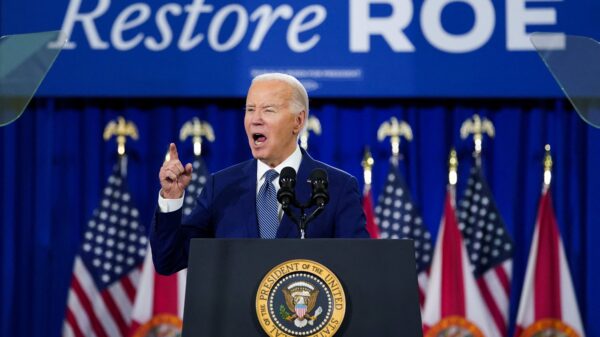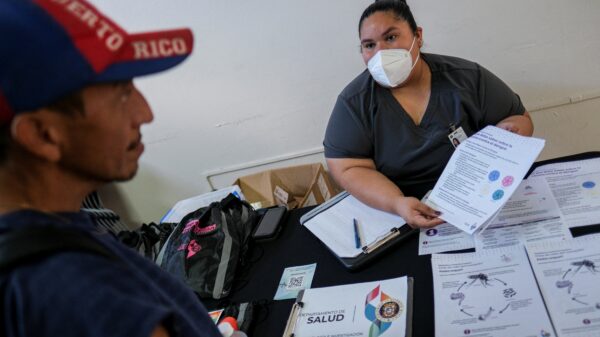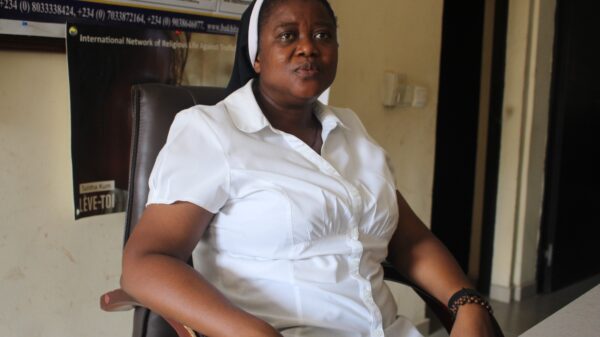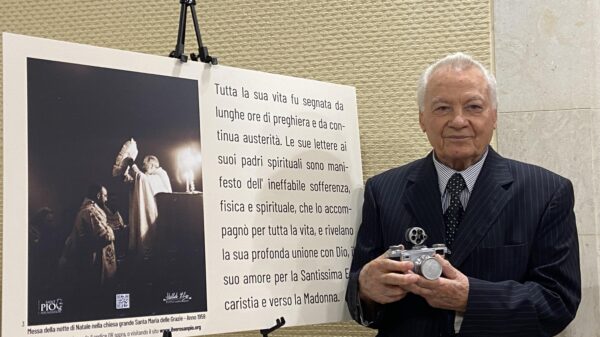The tray of food was sitting on the bed stand in front of her, looking exactly as it did when it came from the kitchen.
Mom was curled up in bed in her hospital room and the raspy-throated nurse was saying, “You just can’t make someone eat when they’re in this condition.” In other words, Mom had dementia and was not processing the idea that she needed nutrition.
It’s a long story, how Mom had ended up in this small, unaffiliated hospital in Philadelphia. Let’s just say it hadn’t been planned. Mom had the typical outcome of dementia but had been living a pleasant life among the Little Sisters of the Poor at their home for low-income aged in Southwest Philadelphia. Mom loved these nuns — really, nuns of all sorts — and was living a happy life in a Catholic environment that included Mass every day and tender loving care, including help and encouragement from nuns helping her to eat.
How we got to this hospital stay, well, it didn’t matter. Next thing I knew, a kindly young doctor was holding my hand telling me there was nothing more we could do for Mom.
What?
I called the sister in charge of nursing at Holy Family Home. “Let’s get Mom back home here,” she said.
Six weeks later, Mom was sitting at my sister’s kitchen table enjoying creamed onions and stuffing during Thanksgiving dinner. She enjoyed life for another year-and-a-half surrounded by faith, family and love. She was 87 when she died peacefully with nuns and family at bedside singing to Jesus.
Fast forward 13 years and Phil, my father-in-law, is dealing with full-blown Alzheimer’s that has been diminishing life for him, most of the last decade. He’s 89.
No one should have to deal with this insidious disease, but if ever there was a good-natured, easygoing man who could maintain his cornball sense of humor even though he couldn’t remember my name, it’s Phil. He’s had a long and difficult road, but it would be unfair to say he’s been a burden.
What’s unfair and burdensome — among other things, for Phil — is the bureaucracy that exists in trying to take care of people in his situation. The black hole of health care and assisted living for people unable to take care of themselves is a man-made problem and should not be this difficult.
But that’s another story. This is a story about life and what’s worth living.
The once strapping, productive, self-sufficient Phil is no longer those things. He could make anything with his hands — fix, build, grow, manage anything and everything.
No longer.
We now see him, sometimes, with the tray of food sitting on the bed stand in front of him, looking exactly as it did when it came from the kitchen.
Sound familiar? And this was at a pricey, private facility.
“We can’t force him to eat?” No, I suppose you can’t. Coax and cajole are better words. I wish you could have met Sister Benedict.
All of this is to say Phil still lives the life he was given. Same as Mom did.
And two families did all they could to keep them going.
It’s not easy. It can be heart-wrenching.
At no time, however, would anyone who knew Phil or Mom and all the Phils and Moms in the world want to end it for them. The one smile, one look of recognition makes it all feel worthwhile. We’re giving to them a sliver of all they gave to us.
For Phil, it’s his daughter doing the coaxing and cajoling.
Delaware’s legislature is again fiddling around with the idea of passing a law that would allow physicians to aid in the death of patients. Opponents call it a slippery slope, and it’s the right phrase. Any time the government is given power, it never ends there. Plain and simple. You’ve probably heard of a temporary tax, but you most likely have never really seen one. Give them an inch and they’ll take a mile. They’ll tell you they’re not after the Phils and Moms, but there will come a time when they’re too inconvenient.
People who don’t have family looking over their shoulders — people who know these are lives worth living — won’t have advocates to protect them and help keep them going.
Then there are the physically and mentally disabled. And people with psychological ailments – depression, anorexia and others.
Most doctors will tell you helping people to their death is not what they do. It’s against all their beliefs, everything they’ve worked to accomplish.
Government should not be in the life-and-death business. Physician-assisted suicide has happened in other places, and the outcomes have been predictable.
Evidence has shown there has been abuse of the system — stretching the limits of what are supposed to be good intentions.
They’re not good intentions.
Physician-assisted suicide is a terrible idea. Government should not be in the business of allowing people to end the lives of others.
We’re intended to live from birth until natural death. End of story.
What supporters of this idea want is the easy way out. It’s easier to not help to feed people who cannot feed themselves.
That’s not easy, but it’s worth every spoonful.
Joseph P. Owens is editor and general manager of The Dialog, the Catholic newspaper of the Diocese of Wilmington, Delaware.











































